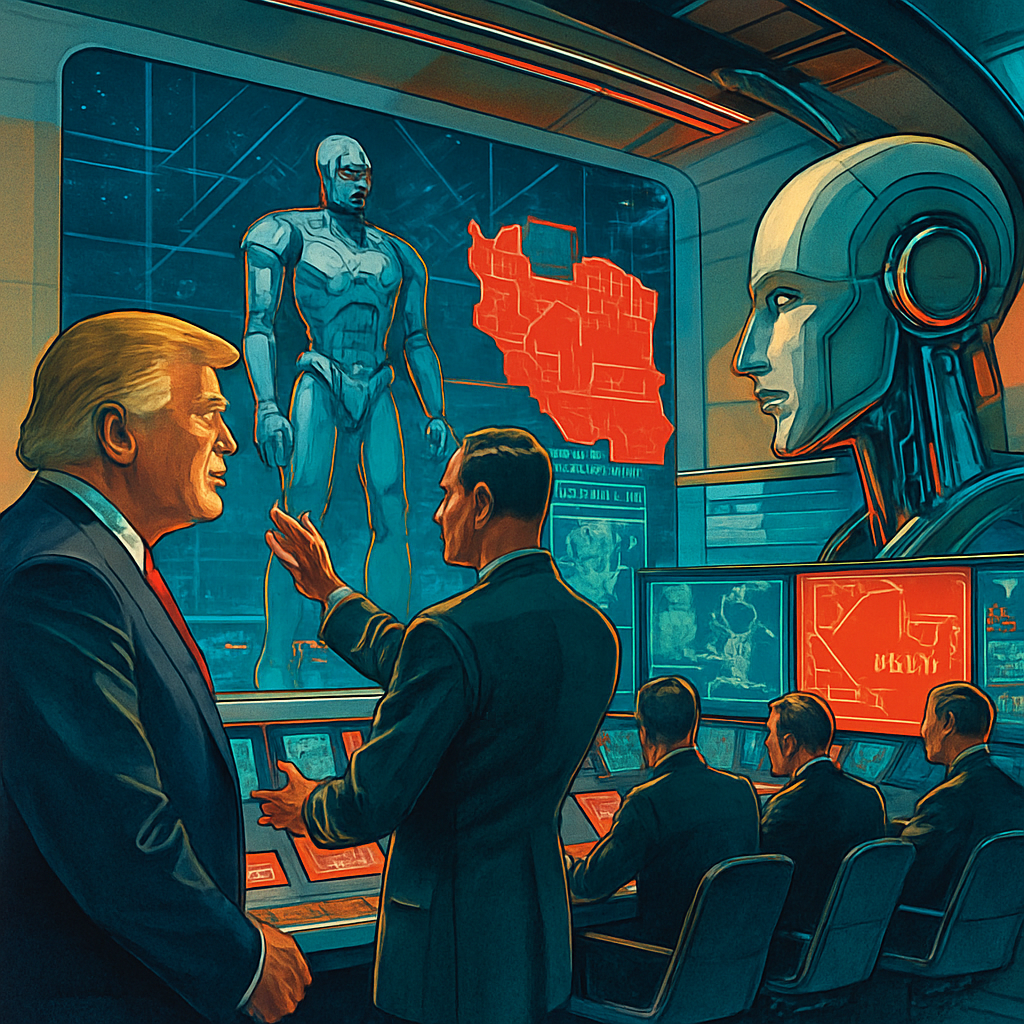The Middle East Crashes the AI Group Chat Party

“The Middle East Has Entered the AI Group Chat”
“Trump administration officials and advisers are discussing this month whether to expand the Pentagon’s secretive war in the Middle East into an overt campaign of airstrikes, commando operations, and cyberattacks against Iran—a shift that would balloon the number of troops, warships, and weapons in the region.” That’s the briefing, right from Wired’s very own pit of digital ink.
So, let’s get to the crux of the matter here: is the Trump administration looking to bolster its military reach in the Middle East? If you ask Wired, they’d likely tilt their jaded hat to the affirmative, but that’s just scratching the surface. What they’ve left unmentioned is how Uncle Sam is increasingly embracing artificial intelligence and tech investments as a complementary force to traditional boots-in-the-mud warfare.
While some may quake in their boots at the thought of ASIMOs being deployed to play the bad cop, tech geeks and enthusiasts are as thrilled like a kid who just got the latest gaming rig. Imagine, a world where drones don’t just deliver burritos to your backyard, but also secure a country’s borders. Incredible, isn’t it?
Mind you, it’s not all peace and love at Silicon Valley campfires. The rising prowess of artificial intelligence in warfare is sparking quite the ethical debate. But this isn’t a nineteenth century gentlemen’s club, and this is certainly not your grandma’s war. Yes, there might be potential risks involved with AI but maybe, just maybe, it’s worth having that conversation.
Investing in AI doesn’t just mean we’re thrusting towards a digitized battlefield. In fact, let’s talk business: the AI market is an express train with countless gold nuggets and the Trump administration seems all set to jump onboard. However, some critics can’t resist pointing out that we’re looking at the Middle East through dollar-tinted spectacles. Meanwhile, others argue that all investments are inherently risky, and the AI market in the Middle East is no more of a wild card than, say, Bitcoin.
While it seems like we’re veering away from traditional methods, let’s not forget the value of good ol’ diplomacy and mediation, even in a world of AI. So, while the tech aficionados are excitedly envisioning a future of robotic warriors and cybernetic commandos, it’s vital to remember that all tools—be it a peace treaty or a Predator drone—have their place in maintaining global peace and stability.
At the end of the day, whether you’re donning a crisp suit in the White House, or a hoodie in a tech start-up, the intersection of artificial intelligence and warfare signals a defining moment for the future of global conflict. Whichever side of the fence you sit on, get comfortable; this debate shows no signs of simmering down anytime soon.
